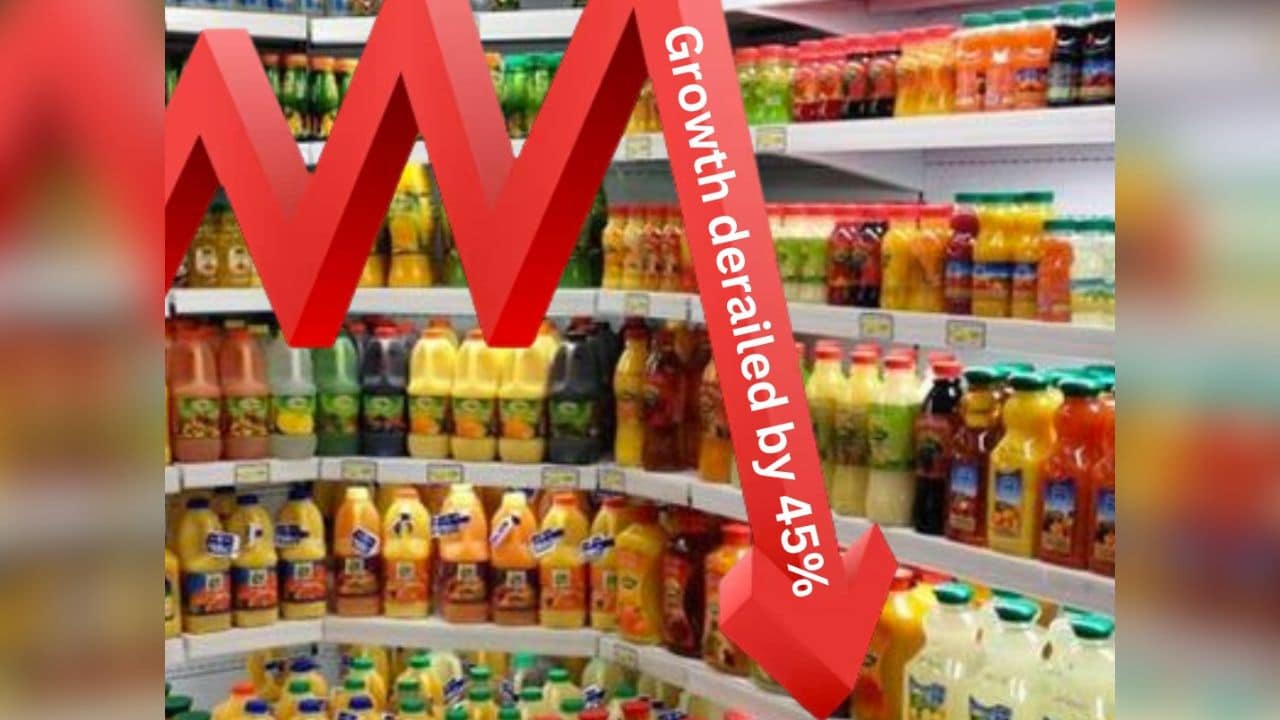The formal packaged juice industry has experienced a significant setback, with a 45% decline in volume during the months of March and April 2023.
This decline can be attributed to the implementation of a 10% Federal Excise Duty (FED) on juices, introduced in February 2023 through the Supplementary Budget.
The repercussions of this decision extend far beyond the industry itself, impacting crucial aspects such as business size, sales tax revenue, children’s nutrient intake, and farmers’ livelihoods.
The formal packaged juice industry, renowned for its contribution of approximately PKR 14 billion in tax revenues, has been adversely affected by these circumstances.
Initially projected to surpass PKR 70 billion based on the industry’s growth rate, industry sales are now estimated to plummet to PKR 43 billion, revealing the stark contrast caused by the imposition of the 10% FED on the economy.
The consequences of this tax also reverberate throughout the fruit industry. In the previous year, the industry procured around 100,000 tons of mangoes and various other fruits from local farmers, specifically to convert them into pulp.
However, following the implementation of the 10% FED levy in 2023, the purchase of fruit pulp is expected to drastically decline from approximately 61,000 tons to 31,500 tons, marking a significant projected decline of 50% in volume.
This reduction will undoubtedly have adverse effects on the rural economy and impede its formalization, thus directly impacting the livelihoods of fruit farmers.
Moreover, the implications of this tax also extend to the issue of fruit wastage. As the formal packaged juice industry plays a pivotal role in mitigating substantial food wastage and safeguarding farmers’ livelihoods through timely fruit procurement, the decrease in fruit pulp purchase will likely result in increased fruit wastage.
This outcome is particularly concerning as it further exacerbates the challenges faced by the country.
Beyond the economic repercussions, imposing additional taxes on juices also has negative implications for children’s nutrition. Juices serve as a valuable source of essential vitamins and minerals found in fruits, particularly for children.
With the reduction in juice consumption due to the tax, the intake of these vital nutrients will decrease for many children nationwide. Given that appropriate nutrient intake is often lacking among children in Pakistan, this represents another adverse impact of the additional taxes on the younger generation.
It is pertinent to mention that the additional taxes on juices impact not only the industry but many other stakeholders throughout the blockchain.
From children to farmers and fruit, there is a negative impact on all of these.
The imposition of the 10% FED on juices has far-reaching consequences that extend beyond the formal packaged juice industry. Its adverse effects ripple through the economy, impacting various stakeholders, including farmers, fruit producers, and children. This situation calls for a reevaluation of the government’s decision, urging them to explore alternative strategies to promote the growth of the juice industry and contribute to overall economic progress.





















